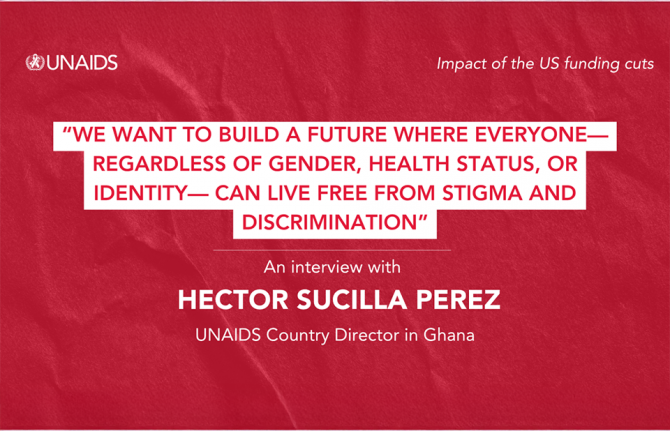

Feature Story
Impacts of U.S. pause of foreign assistance on global AIDS programmes in Kenya
09 February 2025
09 February 2025 09 February 2025Overall National Response
A Cabinet memo on the current situation and recommendations for the government of Kenya (GOK) to mitigate the situation has been developed by Ministry of Health and domestic resource allocation is a key recommendation as well as fast-tracking the development of the ongoing HIV sustainability roadmap.
A special national HIV inter coordination committee (ICC) that includes CSOs, communities, private sector, UN Agencies and government stakeholders was convened by UNSDCC on Friday, January 31st to assess the impact and suggest solutions.
Commodity Security
UNAIDS’ Country Office (UCO) has been part of the commodity security meetings.
All requests to distribute PEPFAR-supported products in country through USAID are on hold until further guidance is provided to unfreeze the initial communication.
Products that were to be distributed in January 2025 under USAID/PEPFAR include ARVs (Nevirapine syrup, Dolutegravir 10 mg and 50 mg). For these products, health facilities had a stock balance between 2 to 4 months by 31st December 2025.
The country may start experiencing erratic supply of Nevirapine syrup and Dolutegravir (DTG) 50 mg towards the end of March and May 2025, respectively, if the stop work order is not lifted.
The current stocks at Kenya Medical Supplies Authority (KEMSA) for DTG 10 mg will sustain the country beyond June 2025.
Viral load and EID products are mainly procured through PEPFAR support. This will be adversely affected if the stop order is not lifted as soon as possible as the quantity under the Global Fund is minimal, targeting specific point of care testing sites.
Stop Gap Measures for Commodity Security
GOK will be required to allocate funds for the distribution of these products from Missions for Essential Drugs and Supplies (MEDS) to health facilities. The estimated cost by KEMSA is approximately USD 10 million.
Procurement and delivery of health products will be facilitated by the Global Fund and government counterpart financing. Additionally, discussion to front load commodities under Global Fund year two will be initiated.
If the stop order continues, GOK will be required to allocate funds to cover the deficit.
Discussions to allow Government to distribute HIV commodities under MEDS is to be initiated if the stop work order is not lifted. (To note, as of February 2, 2025, there has been a reprieve with the new circular on waiver for administration costs for procurement and supplies of essential drugs. The circular is however yet to be implemented as it is a new directive)
Human Resources for Health
All PEPFAR-supported medical personnel/health workers have been requested to stop work as per the stop work order effected in PEPFAR supported counties and facilities.
All PEPFAR-supported implementing partners (CSOs, FBOs, UN) and sub-grantees have been requested to stop work and consequently, staff have been requested to proceed on leave for the duration of the stop work order (90 days).
In some of the counties, the county government has recalled all health workers who are on leave to cushion the situation.
UCO programs supported by PEPFAR through COAG (Community led monitoring and Strategic Information) have been halted.
Consequently, the five UCO CLM partners (CSOs, KP led organizations) have stopped work and over 148 staff IP staff have been affected, and service delivery constrained.
Way Forward
UCO to consider supporting a national communities’ meeting to discuss the impact on service delivery and make recommendations to national and county governments.
As mentioned above, as of February 2, 2025, there was a reprieve with the new circular on waiver for administration costs for procurement and supplies of essential drugs, including continued support for human resources. Hopefully, measures will be implemented this coming week to avert potential risks.



